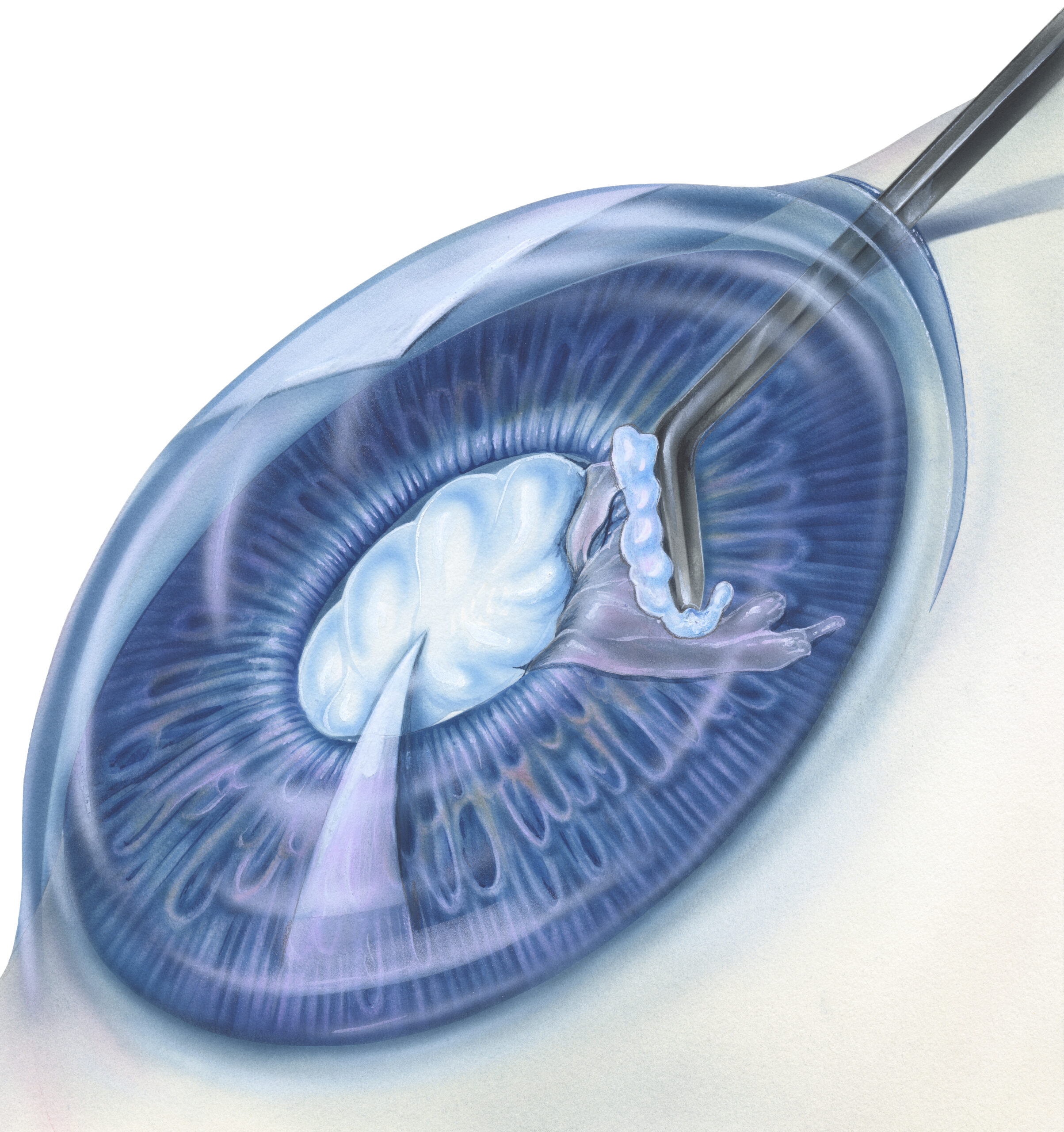
The month of June is “Cataract Awareness Month” so now is an excellent opportunity to shed some light on the leading cause of blindness worldwide. Approximately 20.5 million Americans age 40 or over are afflicted with a cataract in one or both eyes. About 6 million of these people have undergone cataract surgery, which has become the most common outpatient surgery in America.
What are cataracts?
A cataract is a clouding of the lens in the eye. The lens is a part of the eye responsible for focusing light and creating clear, sharp images. As people grow older, the proteins and water in the lens clump together and form cataracts. These proteins restrict the proper movement of light in the eye and if the light obstruction is severe enough, blindness may occur.
Though cataracts are commonly seen in the aging, some people are genetically predisposed to them. Also, steroid medications, statins, and phenothiazines can cause cataract formation. Diabetes and cigarette smoking can lead to their development as well. The good news is cataracts are easily corrected with a small eye incision and using ultrasound to break up the protein buildup. The protein is sucked away and then a foldable lens is inserted into the eye. When you compare this to the cataract surgeries of 30 years ago, which often left patients blind, the technological advances seem short of miraculous. Imagine being in your 40s or 50s and unable to work, drive, or barely see your hand in front of your face! Such vision loss is a huge detriment to the quality of life. But thanks to cataract surgery, it’s not uncommon for 20/20 vision to be restored.
Cataract symptoms
Some people describe living with cataracts as looking through a gauzy curtain or the dirty windshield
of a car. People suffer with blurred vision, dull color vision, problems with sun glare, and increased near- sightedness. Cataracts are usually not painful, and they tend to develop gradually. Unless the cataracts are in the advanced stages there are little outward symptoms such as eye redness. How to reduce the risks of developing cataracts: Luckily there are steps you can take to minimize the likelihood of ever developing cataracts:
Are you or a loved one a candidate for cataract surgery? A routine eye exam will reveal early cataract development even if you’re not having any problems with your vision. However, you will probably be the first person to notice any symptoms. It’s not uncommon for the lens to start clouding before the age of 40.
Anyone who has vision loss due to cataracts may be recommended for surgery unless there is additional eye disease that limits vision. Cataract surgery usually takes less than 30 minutes and doesn’t require heavy sedation, so there’s no worry about placing a strain on the lungs or heart. Value one of your most precious gifts, the gift of sight! Take care of your eyes because they will be with you for a long, long time. And if you do develop cataracts, don’t despair. Though aging is inevitable, the advances in medical science make the journey much more enjoyable.

A new study suggests that a widely used sugar substitute found in diet sodas, chewing gum, and low-sugar yogurt may elevate insulin levels. This could increase the long-term risk of heart disease. “Artificial sweeteners have infiltrated nearly all types of food, making it crucial to understand their long-term health effects,” said Yihai Cao, senior author […]

Diet Coke has long been a fan-favorite among soda lovers who want a fizzy, guilt-free alternative to traditional soft drinks. While its zero-calorie, zero-sugar label makes it seem like a healthier option, the reality is far more concerning. Despite its undeniable popularity, Diet Coke’s nutritional profile has raised red flags among health experts for years. […]

New study shows that embracing an anti-inflammatory, plant-forward diet can support cognitive function and help reduce the risk of dementia. What You Eat Shapes Your Brain The food you eat doesn’t just impact your body—it also affects your brain. Research suggests that eating an anti-inflammatory, plant-based diet can help improve memory, focus, and overall brain […]